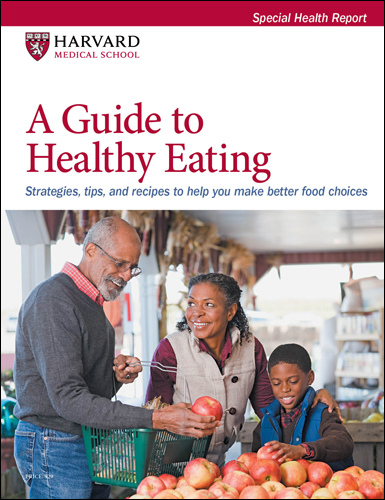A healthier butter for your heart?
Products with plant stanols are an alternative to butter, but the health claims might not stand up.

Nutrition experts often advise limiting your daily intake of butter, which is high in saturated fat, in order to keep your arteries clear. Are butter substitutes made with plant stanols really a better alternative?
Plant stanols are derived from plant cell membranes. They are found naturally in foods such as nuts, beans, fruits, and vegetables. Past studies have shown that supplements containing these naturally occurring compounds can lower "bad" LDL cholesterol by up to 14% in people taking 2,000 to 3,000 milligrams (mg) a day. But the problem is that butter-replacement products often don't have enough plant stanols to produce a therapeutic effect.
Improving cholesterol
To see a reduction in your cholesterol levels, you would likely need to consume at least four tablespoons a day, says Kathy McManus, director of the Department of Nutrition at Harvard-affiliated Brigham and Women's Hospital. However, a tablespoon of a butter substitute with plant stanols has about 70 calories. "Doing that math means that in order to have enough of the substitute to see a benefit, you'd have to consume 280 calories' worth. Unless you are underweight, it's probably not a good idea to eat that much," says McManus.
Types of plant stanols
You can purchase plant stanols in pill form. But like other supplements, there is always the question about the quality and quantity of the active ingredients. Some plant stanols come in a chew form, but keep in mind that these products have a big drawback: they contain about 10 grams of added sugar per serving. "It's like candy," says McManus. "So, people need to be aware of that." If you're trying to lower your cholesterol, the best approach is often to focus on tried-and-true strategies, says McManus. These include eating a plant-based diet with more fruits and vegetables and less processed foods, reducing consumption of saturated fat, and working to maintain a healthy weight. If you are looking for a healthier alternative to butter, consider switching to liquid oils, such as olive oil or avocado oil, or use a nut butter as a spread. Some good options are peanut butter and almond butter, says McManus.
You can still use traditional butter, but save it for special occasions or for recipes where only true butter flavor will do, she says.
Image: © eelnosiva/Getty Images
About the Author

Kelly Bilodeau, Former Executive Editor, Harvard Women's Health Watch
Disclaimer:
As a service to our readers, Harvard Health Publishing provides access to our library of archived content. Please note the date of last review or update on all articles.
No content on this site, regardless of date, should ever be used as a substitute for direct medical advice from your doctor or other qualified clinician.
















